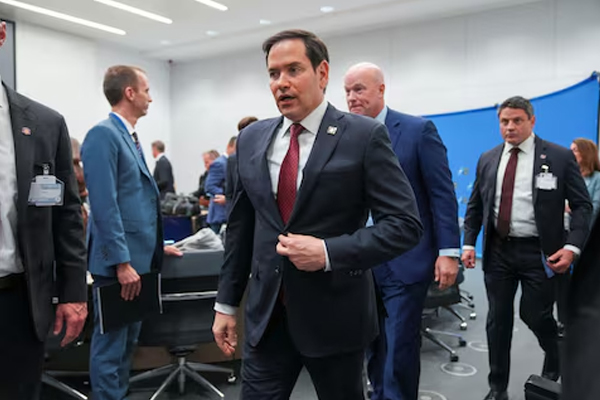
The United States will no longer shoulder the bulk of global humanitarian aid, Secretary of State Marco Rubio said on Friday, urging other wealthy nations to contribute more following the devastating earthquake in Myanmar.
“We’re not the government of the world. We’ll provide global humanitarian aid, just like everybody else does, and we’ll do it the best we can,” Rubio told reporters in Brussels. “But we also have other needs we have to balance that against.”
President Donald Trump ordered a 90-day pause on all U.S. foreign aid on his first day in office. That action, and ensuing stop-work orders halting many programmes of the U.S. Agency for International Development worldwide, have jeopardised the delivery of life-saving food and medical aid, throwing into chaos global humanitarian relief efforts.
USAID itself has been largely dismantled as Trump and billionaire Elon Musk press ahead with an unprecedented push to shrink the federal government, with much of the agency’s staff put on leave or let go and many of its grants terminated.
The top U.S. diplomat said it wasn’t fair to expect that the United States would shoulder 60-70% of humanitarian aid around the world and that there were a lot of “rich countries” in the world that should pitch in. He specifically cited China and India.
“We are the richest country in the world, but our resources are not unlimited. They are not unlimited, and we have a massive national debt. We have many other priorities as well and it’s time to recalibrate all of that. So we’ll be there. We’ll be as helpful as we can. We’ve got other things we have to take care of as well,” he said.
“China is a very rich country. India is a rich country. There are a lot of other countries in the world, and everyone should pitch in.”
Last Friday’s 7.7-magnitude quake, one of Myanmar’s strongest in a century, jolted a region home to 28 million, toppling buildings such as hospitals, flattening communities and leaving many without food, water and shelter.
The death toll from the quake has climbed to 3,145, with more than 4,500 injured and more than 200 still missing, the country’s military junta said.
Myanmar Not The Easiest Place
The United States, which was until recently the world’s top humanitarian donor, has offered a relatively modest $2 million in response to the earthquake. Washington also said it would send a three-member assessment team, though their arrival has been delayed by problems obtaining visas from the military regime.
In past years, the U.S. has regularly deployed skilled rescue workers quickly to save lives in response to tsunamis, earthquakes and other disasters around the world.
Rubio rejected the criticism that Washington was slow to respond to the earthquake because USAID was dismantled.
Instead, he said Myanmar was not “the easiest place to work”, saying the ruling military junta does not like the United States and prevents it from operating in the country the way it wants to.
The United Nations human rights office said on Friday that Myanmar’s military is limiting critically needed humanitarian aid for earthquake victims in areas where it sees opposition to its rule.
The American absence shows how Trump’s moves to slash the size of the U.S. government have hobbled its ability to act during disasters, three current and former U.S. officials told Reuters.
(With inputs from Reuters)




